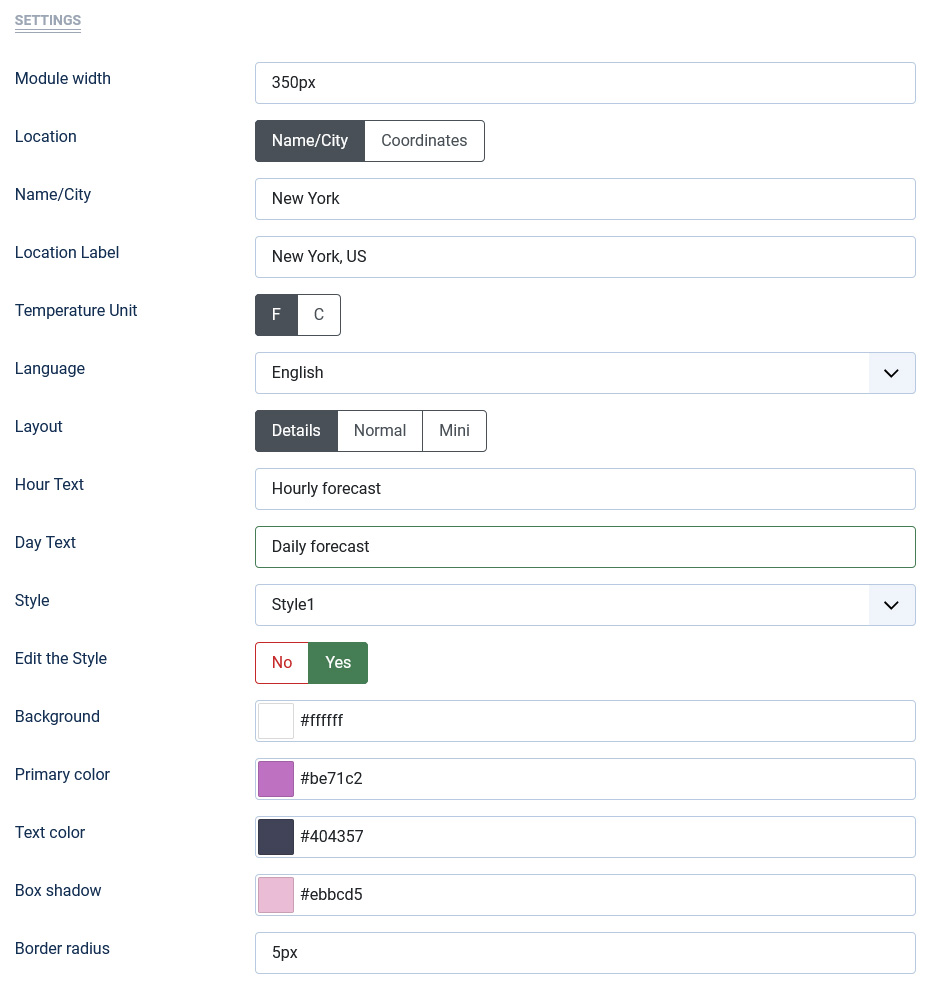Settings Page
After successful installation of the extension, go to Content > Site Modules and Search for module name. If you don't find it in the modules page then click on the New button in the top left corner of the page and add the Module.

There are a few specific settings that you should use when using the module.
| Parameters | Options | Description |
|---|---|---|
| Module width | [String] | Set the width of the module in pixels or percentage. For example you can set 100% or 1200px. |
| Location | [City||Coordinates] | You can choose location by city or coordinates. |
| Name/City | [String] |
Enter the exact name of your city in English. |
| Location Label | [String] |
You can enter your location by name according to your language |
| Temperature Unit | [C||F] | Units of measurement. C and F units are available. |
| Language | [String] | You can use the lang parameter to get the output in your language. |
| Layout | [Details||Normal||mini] | You can choose a layout that suits your requirements |
| Hour Text | [String] | Enter text for Hourly Forecast |
| Day Text | [String] | Enter text for Daily Forecast |
| Style | [String] | You are free to choose a style for you. |
| Edit the Style | Background,Color | Feel free to get creative with the parameters provided to create a great style of your own |
| Tag Class | [String] | The tag class attribute is used to specify a class for the module |
| CSS | [String] | You can add extra CSS into the module parameters easily without modifying any template CSS files. |